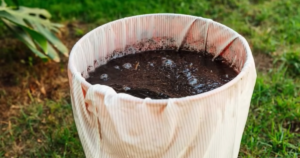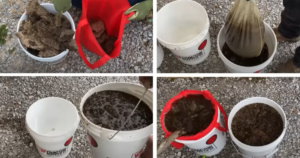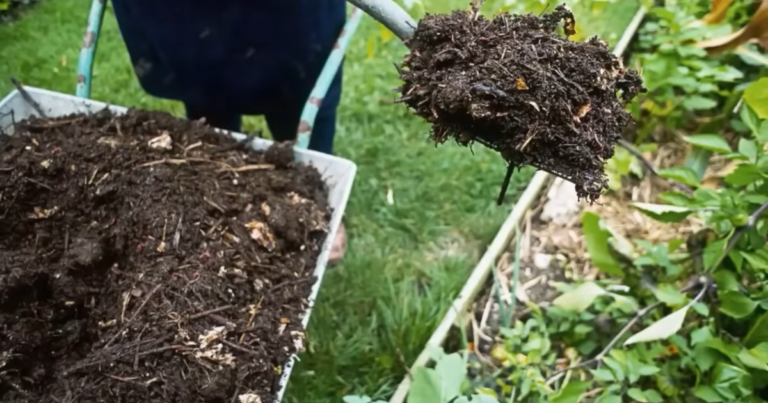Gardening enthusiasts are always searching for the best ways to enhance plant growth, and one effective, eco-friendly solution is to boost your plants with manure tea. This nutrient-rich organic fertilizer helps improve soil health and provides essential nutrients for your plants, making it a natural alternative to synthetic fertilizers. In this article, we’ll explore the benefits of manure tea and how to make and apply it to promote healthier growth in your garden.
To effectively boost your plants with manure tea, it’s essential to understand how this organic fertilizer works. By using manure tea, you can improve the nutrient content of your soil while promoting healthier plant growth. Many gardeners turn to chemical fertilizers, but when you boost your plants with manure tea, you’re opting for an eco-friendly, sustainable alternative. Whether you’re growing vegetables, flowers, or herbs, this natural solution can make a big difference in your garden. Regularly applying manure tea ensures your plants get the nutrients they need to thrive.
What is Manure Tea?

Manure tea is a liquid fertilizer made by steeping manure in water. This nutrient-rich solution feeds your plants, enhancing both soil health and plant growth. Unlike synthetic fertilizers, manure tea is gentle and provides a slow release of nutrients. It’s a sustainable and eco-friendly option for gardeners looking to promote healthy plant growth without damaging the environment.
For more insights into growing healthy plants, take a look at the complete guide to companion planting, which discusses how plant pairings can help maximize soil fertility, much like manure tea.
Benefits of Using Manure Tea
Using manure tea in your garden offers several notable benefits:
- Nutrient-Rich: It supplies essential nutrients like nitrogen, phosphorus, and potassium to plants, fostering faster growth.
- Eco-Friendly: As a natural, organic fertilizer, it reduces reliance on synthetic chemicals, promoting sustainable gardening.
- Improves Soil Health: Manure tea enhances the microbial activity in the soil, leading to better soil structure and aeration.
- Cost-Effective: Homemade manure tea can save you money compared to commercial fertilizers.
For a deeper understanding of the broader benefits of organic fertilizers, check out the Benefits of Organic Fertilizers.
Materials Needed to Make Manure Tea
To create your own manure tea, you’ll need:
- A 5-gallon bucket or large container
- Water
- A cheesecloth or old pillowcase (for filtering)
- Manure (cow, horse, rabbit, poultry, or goat manure)
Avoid using manure from carnivorous animals such as dogs or cats, as these can carry harmful pathogens. Using manure that is either composted or aged is ideal since fresh manure can be too harsh for some plants.
If you’re looking for more detailed tips on composting manure, check out this Composting Manure Guide.
How to Make Manure Tea

There are two common methods for making manure tea, both simple and effective:
1. The Bucket Method
- Fill a 5-gallon bucket two-thirds full with water.
- Add the manure, filling the remaining space in the bucket.
- Let it steep for 1-3 days, stirring occasionally.
- Strain out the solids using a cheesecloth or strainer.
- Dilute the liquid to the color of weak tea before use.
2. The Manure Tea Bag Method
- Place the manure in an old pillowcase or a few layers of cheesecloth.
- Submerge the “tea bag” in a bucket of water.
- Let it steep for a couple of days, stirring occasionally.
- Remove the bag, wring it out, and add the manure to your compost pile.
Diluting and Storing Manure Tea
Once your manure tea is ready, ensure it’s diluted to avoid overwhelming your plants. A good rule of thumb is to dilute it until it resembles a pale brown or yellow liquid, similar to weak tea. This ensures your plants receive the nutrients they need without the risk of root burn.
Store any extra manure tea in a cool, dark place, but aim to use it within a week for optimal freshness.
For more detailed guidance on improving plant care, don’t miss the step-by-step instructions on growing mint, which can be especially helpful when integrating manure tea with other gardening techniques.
How to Apply Manure Tea
Manure tea can be applied in two primary ways:
1. Foliar Feeding
- Use a sprayer to mist the diluted manure tea directly onto the leaves of your plants.
- Focus on the tops and undersides of the leaves for the best absorption.
2. Soil Drenching
- Pour approximately one pint of diluted manure tea around the base of each plant.
- This method allows the nutrients to seep deep into the soil, nourishing the plant’s roots.
Both methods are effective, and you can choose based on your garden’s needs.
What Plants Benefit the Most from Manure Tea?
Most plants thrive with regular applications of manure tea. The high nitrogen content makes it especially beneficial for leafy greens like spinach, lettuce, and kale. However, certain root crops, like carrots, radishes, and potatoes, may prefer fertilizers higher in potassium rather than nitrogen.
Apply manure tea:
- Weekly for general garden plants
- Biweekly for heavy feeders like tomatoes and peppers
Avoid over-application, as this can lead to lush, green foliage with poor fruit or root development.
Maximizing Manure Tea Effectiveness
To further enhance the benefits of manure tea:
- Use it alongside compost to provide a balanced nutrient profile for your garden.
- Combine manure tea with other organic fertilizers like seaweed or fish emulsion for a multi-nutrient boost.
- Test the pH of your tea and adjust as necessary. Adding a small amount of lime can help if the tea is too acidic.
For other organic fertilizer ideas, explore this helpful guide on DIY Liquid Fertilizers.
Common Mistakes to Avoid with Manure Tea
While manure tea is beneficial, it’s important to avoid common mistakes:
- Over-fertilization: Too much manure tea can lead to nutrient imbalances. Always dilute and apply sparingly.
- Wrong Manure Choice: Avoid using manure from carnivorous animals or non-composted manure, as it can contain harmful pathogens.
- Poor Timing: Apply manure tea early in the morning or late in the evening to prevent leaf burn.
Frequently Asked Questions
Can I use fresh manure for manure tea?
It’s best to use aged or composted manure. Fresh manure can be too potent and may damage your plants.
How often should I apply manure tea?
Apply manure tea once a week during the growing season for most plants. For heavy feeders, you may apply it every two weeks.
What is the best manure for vegetable gardens?
Cow, horse, and rabbit manure are excellent for vegetable gardens due to their balanced nutrient content.
Is manure tea safe for all types of plants?
While most plants benefit from manure tea, avoid using it on root vegetables like carrots and beets since excess nitrogen can hinder root development.
Conclusion
Using manure tea is a simple, cost-effective, and eco-friendly way to give your garden the nutrients it needs to thrive. By following the steps to create and apply this organic fertilizer, you’ll enjoy healthier, more productive plants. Embrace this age-old gardening practice, and watch your plants flourish!
